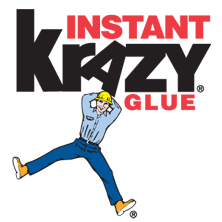“There are three rules for writing the novel. Unfortunately, no one knows what they are.”

So today I set off on a hunt for the magic formula for writing a best seller. Is there one? What exactly does it take to write a breakout novel?
In his excellent book, Writing the Breakout Novel, agent Donald Maass says to write a “breakout” book, you have to open up your story. Make it bigger. Give it higher stakes, a larger theme, one that impacts many more people than you’d find in, say, the population of Cabot Cove. So, I’m assuming that with a few exceptions, most cozy mysteries are not going to be bestsellers. If you do have a “small,” domestic family drama in your story, Maass says, you must find a way to amp up the stakes. Think Grapes of Wrath. It’s a family drama, but man, talk about major stakes.
I ran across an interesting article about how not to write a best seller in the
New York Sun, which stated that positive reviews in major review outlets don’t guarantee best sellerdom. The author said that catchy titles do seem to be a plus, however.As I continued my web browsing, I found an article by Cliff Pickover called
How to create an instant bestselling novel. It’s worth reading for the “Bestseller Plan” (You have to scroll down to see it). Pickover’s Bestseller plan refers to a NYT article called How to Manufacture a Best Seller by Michael Maxen. I couldn’t find Maxen’s original article at the NYT site (although I did find some crabby Letters to the Editor from authors who resented the article. Maxen must have skewered their books.). I did follow the link that claims to summarize the major points of Maxen’s article. That article offers up an actual 10-step formula for how to write a best-seller, by God. Generally, it seems to involve creating a hero-expert, a villain-expert, and a team of experts. When the action flags, you’re supposed to kill someone. See what you think.I also read “
Lester Dent’s magical recipe for writing a best seller.” It’s sort of interesting. It seems oriented more toward selling than best selling, though, and calls writers “pulpateers.” I loved his tip about how to fake local color and fool editors about murder weapons, though. That’s the kind of thing that most writers will never confess they do.So I wish I could tell you I found the absolute formula for writing a best seller. Actually I’d like to hear from you. What do you think makes a book leap to the top of the NYT list? Is there a formula, or a secret? Do you think that to become a best seller, you simply write an excellent story, and accept the rest as a crapshoot? Or do you think that it is all a big fix–that publishers mostly decide who will become the Next Big Thing, by promoting certain books?
~~~~~~~~~~~~~~
Coming up on our Kill Zone Guest Sundays, watch for blogs from Sandra Brown, Steve Berry, Robert Liparulo, Paul Kemprecos, Linda Fairstein, Oline Cogdill, James Scott Bell, and more.


The secret is:
sell a lot of books.
In terms of great titles, Paul Levine has often cited: “Thin Thighs in Thirty Days” as a classic bestselling title.
I think Mark found the secret!
Mark’s right. To land on the bestseller list, it sure helps to sell a lot of books. And in my opinion, one of the best ways to do that is through word of mouth. You can read a dozen glowing reviews on a book but all it takes is one trusted friend to say it’s a stinker, and you won’t go near it.
Beyond those thoughts, I do believe that the marketing and distribution knowhow of the publisher can have a great deal to do with it. My co-writer and I have been lucky to land on a number of international bestseller lists including the Netherlands and Poland. In all cases, it was the efforts of those foreign publishers that contributed to our good fortune since we have never done any book tours, signings, or made any effort to promote our books in those countries. The only thing we had going for us were our publishers.
I think it really has to do with word-of-mouth. Catch enough, and it’s a brushfire that’ll send you onto the list. Otherwise, you’re just grinding it out like most. But I’m sure the promotions that the publisher puts into action (shelf placement, front table, etc.) make a big difference too.
I’m glad everyone is giving us so much credit! There’s no question that the proper mix of promotion and word of mouth are very important, but two questions:
1)If we could create the success of the Next Big Thing at will, how come there are so many Next Big Things that weren’t?
2)Anyone want to mention…write a good book?
The old William Goldman axiom about Hollywood, “Nobody knows anything,” has a dose of application. If a hit could be guaranteed every time, it would be.
I agree that word of mouth is the best long term “formula.” The only one, really. Vast promotion by a publisher can get you an introduction to many readers, but they have to connect to the book. And with your next, and your next…
Heh, Neil, thank you for the last comment. That’s the one that counts, isn’t it? And who would know better than you!
I think Neil is right – but here’s the kicker – there are great books who never become bestsellers and mediocre ones who do but I think that even the latter obviously have lit a fire in readers’ bellies- usually because the plot or the big ‘theme’ of the book is intriguing, fast paced and has a hook that gets people talking. I think maybe that’s the recipe…but Joe is also right about word of mouth as many books with all these great things still languish at the back of the store…sounds like we may never know th secret formula for bestseller-dom!
Great comments, guys! Mark, as the author of “Dying to be Thin,” I have to agree that nothing beats “Thin Thighs in Thirty Days”!
Hi Neil, we’re honored to have you at the Kill Zone! And of course the day you visit is the day you catch us talking about Bestseller Secret Formulas! We’re just kidding! We know that great books (and great editors, natch) are the real secret to best sellerdom!
James, your quote of “nobody knows anything” is the perfect bookend to Somerset Maugham’s 3 rules that nobody knows. Meanwhile, we’ll just keep on writing.
Kathryn~
I like Donald Maass’s book too – he gets you thinking about your story in different ways and I think that’s good.
For me, bestsellers are a good example of the chaos theory. Rules don’t apply. Right now, on the NY Times list, you have Jim Butcher and his noir fantasy about a wizard detective sitting right next to Jodi Picoult’s latest. If anyone can tell me what these two books have in common – that makes them bestsellers at the same time – I’ll eat my hat.
That Neil Nyren fellow just might have it right. Write a good book.
I love that Somerset quote, I actually use it all the time for my students.
I still can’t figure out how New York Times calculates a book to bring it to their list.
Personally, I am trying not to get bogged down with achieving any list right now. My goal is to keep learning about the craft and writing the best book I can write. I guess I’m in the let the dice roll where they may camp.
The book club I belong to often discuss this theme. We can’t figure out how a few books (not going to mention the titles) got to be such huge bestsellers, while others who are better written didn’t.
In terms of reaching the top it seems that there are two ways to me.
1. Write an outstanding book, both storywise and readabilitywise.
or
2. Have an adequate story/readability index, but a topic that everyone is hungry for.
Both of these are also contingent on finding the right agent/editor/publisher combo as well, which is pure luck it seems.
Things that don’t work:
1. Using a time machine. It freaked out the agent when my cousin Leonard showed up in the past to tell him to buy my book and therefore changed history against my favour. I should have told Leonard to take off the crash helmet before speaking to people. (the agent later wrote a book about being visited by future people, it became “Back to the Future” and I got nothing because I was only sixteen then).
2. Lacing the pages with psychedelic drugs…that was just bad in all ways. Agents can’t really fly.
I agree with what everyone is saying- but I also think the real difference is which books the publisher decides to throw their weight behind, and that always strikes me as somewhat arbitrary (and yes, they occasionally do get it wrong. I think the NY Times recently had a piece on classic book flops).
It seems as though it takes an editor getting excited enough about a manuscript to make a big offer, and once that big offer is made, they’re committed- the marketing money and distribution invariably follow. But why some books get the star treatment, and others languish, is a mystery to me–recent case in point, I read Beat the Reaper. Debut novel, huge advance (although I personally didn’t think the story had mass appeal since it’s fairly gruesome, definitely felt more like a Fight Club/cult type of book). I probably read ten debuts in the past year that were all-around better books (not that I didn’t enjoy BTR- I did- but I found the seven figure advance and brouhaha stupefying).
There are exceptions, but generally for a book to become a bestseller, the publisher has to decide to make it a star. Word of mouth only goes so far- if you didn’t get the distribution, the co-op placement, the marketing support…without a pre-existing niche market (see: The Shack) that book won’t reach the public at large in numbers significant enough to make a difference.
Very few authors manage that on their own.
Good points, Michelle. I found an interesting article in the New York Times about how the publishing industry has been slow to use technology to gather reader feedback: http://tinyurl.com/c7dbqm
Bottom line: the publishing industry is knocking around in the dark, playing by an outdated business model, and totally missing the readers. They’re lucky when they hit the Next Big Thing, but the way they’re playing the game right now, it’s just that–mostly luck.
I don’t set out to write a bestseller. I set out to try to write a good book. Why do we have to judge books on commercial criteria alone? On that basis Kafka, Edgar Allan Poe and Herman Melville, to name a few, were, in their own time, abject failures? Some of the best and most important writers never managed to be commercially successful in their own time. Yet now we come to regard financial success as the primary arbiter of a book’s worth. It’s ridiculous – and I say that as someone who does earn a living from nothing but writing.
Why can’t we celebrate the real strength of literature – its breadth and originality – instead of trying to shoehorn everyone into the same mythical ‘bestseller’ template?